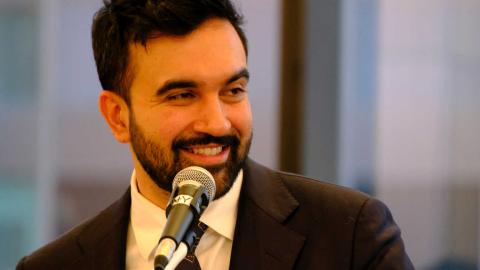Hamas Top Leader Haniyeh Killed in Iran after Hezbollah Second-in-Command Terminated in Beirut
JERUSALEM, Israel – In a stunning development, the top leader of Hamas, and the man many consider to be the number two leader of Hezbollah were killed within hours of each other.
Many believe this marks a turning point in the war between Israel and its Middle East enemies.
Iranian media announced Wednesday that Hamas leader Ismail Haniyeh was terminated in Tehran after he attended the inauguration of Iran's new president.
The reports indicate he was killed in an airstrike on the location where he was staying.
Israel has not commented on the reports, but Prime Minister Benjamin Netanyahu declared after the October 7th Hamas massacre that the leaders of Hamas were "dead men walking."
Haniyeh was seen celebrating the events of October 7th along with other Hamas leaders and had been living in Qatar.
Iran's Supreme Leader Ayatollah Ali Khamenei threatened, "It is our duty to take revenge and severely punish the Zionist entity for the assassination in Iran because the assassination was carried out on our soil."
The U.S. had labeled Haniyeh a specially designated global terrorist, and he also maintained close relations with Turkish President Recep Tayyip Erdogan.
The Iranian Foreign Ministry released a statement reading, "Haniyeh's martyrdom in Tehran will strengthen the deep and unbreakable bond between Tehran, Palestine, and the resistance.”
Earlier, the Israel Defense Forces confirmed it had eliminated Fuad Shukur, one of Hezbollah's top leaders in Beirut.
IDF Chief Spokesman Rear Adm. Daniel Hagari noted, "Fouad Shukur was the commander responsible for the Majdal Shams massacre in which 12 children were murdered after Hezbollah fired an Iranian Falaq-1 rocket directly at a soccer field in northern Israel on Saturday evening. He was a senior terrorist who has the blood of the Israelis and many others on his hands."
Shukur also participated in the 1983 Beirut bombing in the embassy barracks bombing that killed 241 U.S. Marines.

Jonathan Conricus of the Foundation for the Defense of Democracies told CBN News, “My assessment is that Hezbollah, will respond to this. And then the IDF already has other targets ready.”
Conricus believes the next steps are critical. “Where I think that we should be looking forward now to see what type of response will Hezbollah provide. Where will they fire? Which type of weapons will they use? And then, of course, the second, third, and fourth and fifth layer of responses that the IDF has ready to Hezbollah's response.”
The strike came after Hezbollah killed 12 children in a Druze village on the Lebanese border. Conricus contends it's important to remember that Iran is the power behind the terror group.
“As long as Israel doesn't present a strategy and starts to demand a price of the Iranian regime for killing Jews in the Middle East, in Israel, then I don't think that the situation will change, because everything that we see happening since October 7th – and many years before that, but greatly so after October the 7th – all of that is related to Iran,” he said.
Conricus says it's hard to predict whether this may lead to full-scale war.
“There's always an unknown – things that can happen. And then the enemy does things. We will respond and we can find ourselves in unchartered territory, which wasn't part of the strategy," he stated.
Conricus added, "But if cooler heads prevailed, and if the strategic aims will be pursued, then I don't think that Israel and Hezbollah will be going to a major war. I hope not, because I'm not sure that the current conditions are favorable for Israel, and I think that Israel should be focusing on the source of instability in the Middle East and not be dealing with the messengers of Iran, Hezbollah, Hamas, and hold these, but actually hold the Iranians accountable.”
***Please sign up for CBN Newsletters and download the CBN News app to ensure you keep receiving the latest updates.***




